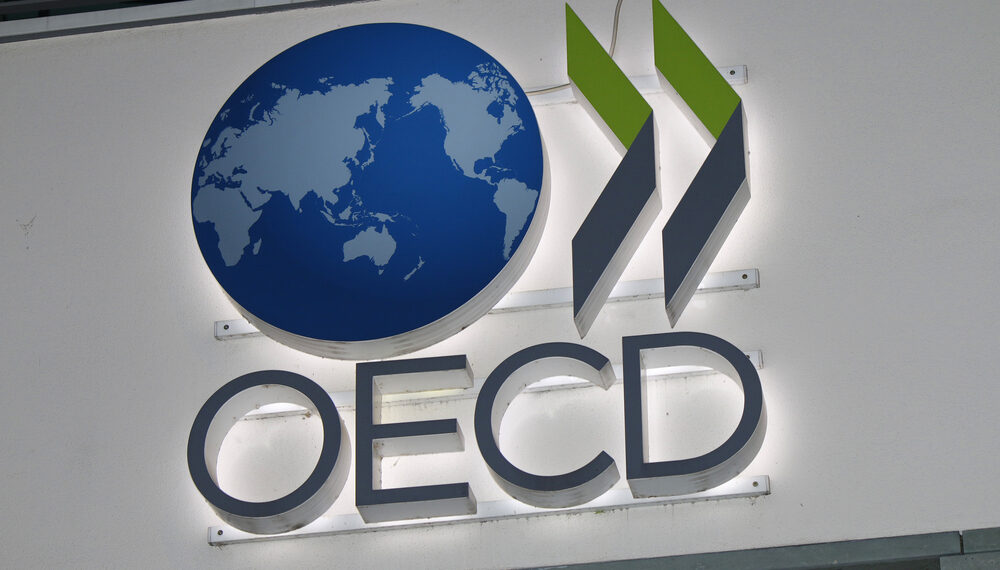
- Global Standard for Automatic Information Exchange: The CARF serves as a universal standard for automatically exchanging information on crypto-asset transactions.
- Africa’s commitment to the CARF reflects a proactive approach to stay ahead of developments in the crypto space.
- The core principle of the CARF lies in its mandate for Crypto-Asset Service Providers (CASPs) to collect and report specific information about their customers’ crypto-asset transactions.
In a significant move toward global tax transparency, the South African Revenue Service (SARS) has aligned itself with over 100 other jurisdictions by committing to the adoption of the OECD Crypto-Asset Reporting Framework (CARF). This framework, developed by the Organization for Economic Cooperation and Development (OECD), represents a crucial step in addressing the challenges posed by the emergence of crypto assets in the tax space.
As the crypto-asset market undergoes rapid development and growth, a standardized approach to information exchange becomes paramount to ensure global tax transparency and prevent the erosion of recent gains. 10 other African nations joined the South in committing to the adoption of OECD CARF. This article explores the implications of South Africa’s commitment to the CARF and delves into the key features of this international standard.
Understanding the OECD Crypto-Asset Reporting Framework (CARF)
The CARF stands as an international standard for the automatic exchange of information between tax authorities, specifically tailored to address the unique challenges the crypto-asset market presents. This voluntary framework, embraced by over 100 jurisdictions globally, seeks to improve tax compliance, clamp down on tax evasion, and alleviate the burden on those diligently paying their taxes.
The core principle of the CARF lies in its mandate for Crypto-Asset Service Providers (CASPs) to collect and report specific information about their customers’ crypto-asset transactions to their respective tax authorities. This information encompasses crucial details such as the customer’s name, address, tax residency, and the type and amount of each crypto-asset transaction. The aim is to create a comprehensive database that tax authorities can automatically exchange with each other annually.
Key Features of the CARF
- Global Standard for Automatic Information Exchange: The CARF serves as a universal standard for automatically exchanging information on crypto-asset transactions.
- Voluntary Participation: While the CARF is not mandatory, the fact that over 100 jurisdictions have committed to its implementation underscores its global relevance.
- Reporting Requirements for CASPs: CASPs are required to collect and report specific customer information to tax authorities, promoting transparency in the crypto-asset market.
- Annual Automatic Information Exchange: Tax authorities exchange information annually, providing a comprehensive overview of residents’ crypto-asset transactions.
- A Tool Against Financial Crimes: Designed to prevent tax evasion and other financial crimes, the CARF ensures crypto-asset transactions face the same level of scrutiny as traditional financial transactions.
The CARF underscores continuous endeavors to align international tax frameworks with the dynamic financial landscape, particularly in response to challenges presented by Crypto-Assets. The introduction of the Crypto-Asset Reporting Framework (CARF) exemplifies a proactive stance aimed at preserving tax transparency amidst the evolving landscape of crypto developments.
Furthermore, the amendments to the Common Reporting Standard (CRS) illustrate a dedicated commitment to ensuring the ongoing relevance and effectiveness of the standard. This commitment is reflected in the incorporation of new financial assets and the augmentation of reporting requirements. The coordinated efforts involving the Organization for Economic Cooperation and Development (OECD), G20 countries, and participating jurisdictions emphasize the global scope of these initiatives and underscore the critical role of collaboration in shaping international tax standards.
South Africa’s Commitment to CARF
As a jurisdiction with a vibrant crypto market, South Africa aims to swiftly incorporate the CARF into domestic law and activate exchange agreements by 2027, pending national legislative procedures. South African Revenue Service (SARS), committed to consistency and smooth implementation, plans to align amendments to the Common Reporting Standard with the CARF timeline. This proactive stance is expected to empower SARS to strengthen its crypto market oversight, ensuring effective tax collection from individuals and entities involved in crypto asset trading.
The CARF encompasses rules and commentary focusing on covered crypto-assets, entities, and individuals subject to reporting requirements, transactions subject to reporting, and due diligence procedures. South Africa’s adoption of the CARF is anticipated to bolster tax transparency, providing a robust framework for overseeing crypto transactions within its borders.
African Countries Committed to CARF
South Africa is in good company in the commitment to adopt CARF. 113 countries worldwide have committed to adopting the OECD CARF. Ten other African nations have committed to the OECD Crypto-Asset Reporting Framework (CARF). This signals a united front in addressing the challenges posed by the rapid growth of the crypto-asset market on the continent.
This coalition comprises diverse countries, each recognizing the need for a standardized and transparent approach to regulating crypto transactions. The participating nations—Morocco, Mozambique, Nigeria, Tanzania, Tunisia, Uganda, Zambia, and Zimbabwe—represent a geographically and economically varied cross-section of Africa, highlighting the widespread acknowledgment of the importance of crypto regulation.
It reflects the understanding that the impact of crypto assets is felt globally, transcending traditional economic boundaries. By actively engaging with the CARF, these African countries are positioning themselves as proactive players in the international dialogue on crypto regulation, contributing to the development of a more inclusive and comprehensive framework.
The participating African nations also recognize the potential economic benefits of a well-regulated crypto market. By fostering transparency and combating financial crimes, these countries aim to create an environment that instills confidence in domestic and international investors.
A secure and regulated crypto-asset market can attract investment, spur innovation, and contribute to economic growth, all while minimizing the risks associated with illicit activities that may undermine the integrity of financial systems. A lot of crypto activity has been happening off-shore in Africa. This is either due to a lack of accessibility or a lack of regulation of cryptocurrency in African countries. It’s easy to see how information sharing on the level of the OECD CARF can benefit African countries in cryptocurrency taxation.
Furthermore, the collaborative commitment to the CARF sends a powerful message to the global community about Africa’s readiness to engage with and shape the future of the crypto-asset market. It demonstrates a proactive approach to regulatory matters, dispelling misconceptions about the region’s stance on emerging technologies. As these countries work together to implement the CARF, they are not only enhancing their regulatory frameworks but also contributing to the broader global effort to establish a cohesive and effective approach to crypto regulation.
A pivotal stride in Crypto-Asset regulation and transparency
The adoption of the OECD Crypto-Asset Reporting Framework by South Africa and other African nations marks a significant milestone in the ongoing efforts to regulate and bring transparency to the crypto-asset space. As the market continues to evolve, the CARF provides a standardized approach that promotes global tax transparency, prevents tax evasion, and ensures that crypto-asset transactions are subject to the same level of scrutiny as traditional financial transactions.
Africa’s commitment to the CARF reflects a proactive approach to stay ahead of developments in the crypto space, empowering tax authorities to effectively regulate and collect taxes from the burgeoning crypto market within its borders. With the global community moving toward a more standardized and transparent crypto regulatory framework, the CARF serves as a beacon for a collaborative international effort to ensure the responsible and accountable use of crypto assets in the financial landscape.
- SEO Powered Content & PR Distribution. Get Amplified Today.
- PlatoData.Network Vertical Generative Ai. Empower Yourself. Access Here.
- PlatoAiStream. Web3 Intelligence. Knowledge Amplified. Access Here.
- PlatoESG. Carbon, CleanTech, Energy, Environment, Solar, Waste Management. Access Here.
- PlatoHealth. Biotech and Clinical Trials Intelligence. Access Here.
- Source: https://web3africa.news/2023/11/17/news/crypto-asset-reporting-framework/
- :has
- :is
- :not
- 10
- 100
- a
- About
- accessibility
- accountable
- actively
- activities
- activity
- address
- addressing
- adopt
- Adopting
- Adoption
- africa
- African
- against
- agreements
- ahead
- aim
- aimed
- aims
- align
- aligned
- All
- alleviate
- also
- amendments
- amidst
- amount
- an
- and
- Annually
- Anticipated
- approach
- ARE
- article
- AS
- asset
- Assets
- associated
- At
- attract
- Authorities
- Automatic
- automatically
- beacon
- becomes
- been
- benefit
- benefits
- between
- bolster
- borders
- boundaries
- bring
- broader
- burden
- burgeoning
- but
- by
- CAN
- challenges
- clamp
- coalition
- cohesive
- collaboration
- collaborative
- collect
- collection
- combating
- commitment
- committed
- committing
- Common
- community
- company
- compliance
- comprehensive
- comprises
- confidence
- continent
- continues
- continuous
- contribute
- contributing
- cooperation
- coordinated
- Core
- countries
- covered
- create
- Crimes
- critical
- crucial
- crypto
- crypto asset
- Crypto Market
- Crypto regulation
- crypto space
- crypto transactions
- crypto-assets
- cryptocurrency
- customer
- Database
- dedicated
- demonstrates
- designed
- details
- developed
- Development
- developments
- dialogue
- diligence
- diligently
- diverse
- Domestic
- down
- due
- dynamic
- each
- easy
- Economic
- Economic growth
- Effective
- effectively
- effectiveness
- effort
- efforts
- either
- embraced
- emergence
- emerging
- emerging technologies
- emphasize
- empower
- empowering
- encompasses
- endeavors
- engage
- engaging
- enhancing
- ensure
- ensures
- ensuring
- entities
- Environment
- establish
- evasion
- evolve
- evolving
- exchange
- exchanging
- exemplifies
- expected
- explores
- Face
- fact
- Features
- felt
- financial
- financial crimes
- financial systems
- focusing
- For
- fostering
- Framework
- frameworks
- from
- front
- future
- G20
- Gains
- geographically
- Global
- global scope
- Globally
- good
- Growth
- Happening
- Have
- highlighting
- How
- HTTPS
- illicit
- illustrate
- Impact
- implement
- implementation
- implications
- importance
- improve
- in
- Inclusive
- incorporate
- individuals
- information
- initiatives
- Innovation
- integrity
- International
- international investors
- into
- Introduction
- investment
- Investors
- involved
- involving
- IT
- ITS
- itself
- joined
- jurisdictions
- Key
- Lack
- lack of regulation
- landscape
- Law
- Legislative
- Level
- lies
- Lot
- mandate
- mandatory
- Market
- Matters
- May..
- message
- milestone
- minimizing
- misconceptions
- more
- move
- moving
- Mozambique
- name
- National
- Nations
- Need
- New
- Nigeria
- OECD
- of
- on
- ongoing
- only
- or
- organization
- Other
- over
- overseeing
- Oversight
- overview
- Paramount
- participating
- participation
- particularly
- paying
- pending
- pivotal
- plans
- plato
- Plato Data Intelligence
- PlatoData
- players
- posed
- positioning
- potential
- powerful
- presented
- presents
- preserving
- prevent
- prevents
- principle
- Proactive
- procedures
- promotes
- promoting
- providers
- provides
- providing
- rapid
- Readiness
- recent
- recognize
- recognizing
- reflected
- reflects
- Regulate
- regulated
- regulating
- Regulation
- regulatory
- relevance
- report
- Reporting
- represents
- required
- Requirements
- respective
- response
- responsible
- revenue
- risks
- robust
- Role
- rules
- same
- scope
- scrutiny
- secure
- see
- Seeks
- sends
- serves
- service
- service providers
- Shape
- shaping
- sharing
- signals
- significant
- smooth
- South
- South Africa
- South African
- South African Revenue Service (SARS)
- Space
- specific
- specifically
- stance
- standard
- standards
- stands
- stay
- Step
- Strengthen
- stride
- subject
- such
- swiftly
- Systems
- tailored
- tax
- Tax Evasion
- Taxation
- Taxes
- Technologies
- ten
- that
- The
- The Future
- their
- themselves
- These
- they
- this
- those
- timeline
- to
- together
- tool
- toward
- Trading
- traditional
- transaction
- Transactions
- Transparency
- transparent
- Tunisia
- type
- Uganda
- undergoes
- Undermine
- underscores
- understanding
- unique
- United
- Universal
- use
- varied
- vibrant
- voluntary
- well-regulated
- while
- widespread
- with
- within
- Work
- work together
- worldwide
- zephyrnet













